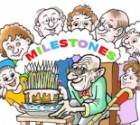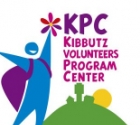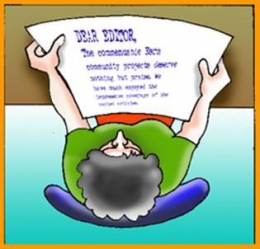-1413213879.jpg)
Thank you ESRA Welfare Committee
- Thank you from the bottom of my heart for the scholarship. Esther C., Givatayim
- Due to the A.W. family’s pressing needs, I turned to you for aid. Thank you deeply for your speedy response and your donation. I hope you will continue in your diverse activities, to improve, even if only a little, the quality of life for immigrant families who are struggling to cope with many difficulties. Hodaya Basha, Social Worker, Kiryat Malachi
- I was very happy to receive your check from the Shari Mendes Fund which will help me pay for food and medication that is not covered by the health fund. It will also help with paying bus fare for the many buses I need to take to clinics where I receive medical care for my illness! I wish you good health. Ella Y, Netanya
- Our deep thanks, in the name of young Natalie C. and her family, for your generous donation. This will help cover the full cost of her studies. The school is committed to both the welfare of the students as well as their educational achievements. Your donation is very heartwarming and admirable. May you always be among those who give. Iris Weinstein, Principal, Naamat Technological High School, Petach Tikva.
What is long-term care insurance policy and what does the fine print say?
Long-term care insurance (seudi) is a policy you buy from your health fund, which is supposed to help pay the bills when you have a serious health situation. Sounds good. We buy health insurance from one of several companies in Israel. I found my company, Maccabi, a very good one over the past 60 odd years. I chose it because it was the only fund, in those days that allowed you to choose your doctor. Some years ago, a serious illness struck our family and we needed more home-care. As things got worse, Maccabi offered us some financial assistance because we needed a caregiver, This sounded good until one day we were informed that the payments for the caregiver would end in 60 days. Since we had used the caregiver for nearly three years, I started to ask questions. I was informed that I probably had never read the fine print in the policy. When I did I found that this extra payment for long-term care is very interesting.
It does not say that you receive a certain amount of money, it says something like this; When you are entitled to the long-term care payment it can start with a few hundred shekels a month or even a few thousand depending upon your needs, and it will last for five years from the day you start getting the first payment, which may also cover some help with a cleaning women once or twice a week. Then it adds that if you need full-time help, you can receive up to a maximum amount. But here is the "fly" in the payment. The payment you receive will be for only five years from the day you started. In other words, if you took the small payment for the cleaning women for two years and then you have the caretaker, you only have five years in total and the support stops. The insurance does not say that you are entitled to a maximum amount of money over the years; it says you have a time limit.
I believe the insurance policy is not honest with us, the consumers. I am sure the conditions are written in the small print, but when buying insurance you usually have an amount of money limit, not a time limit.
Life insurance, fire insurance do not say if you have a small fire they will deduct the amount you receive if some years later you have a big fire: car insurance has a maximum amount they will pay you, but here we are saddled with a time limit and it has nothing to do with the amount they pay and even worse, there is only a maximum time limit and not a financial limit as to what you will be paid. To my way of thinking, the policy should say the maximum amount you can receive even if it takes ten years. If you think that all this sounds confusing, you are right, but the end result is that I believe the insurance companies as usual are "doing us in".
By Murray Greenfield
Tel Aviv
A must read for diabetics
In the spirit of paying things forward, I would be remiss not to share details of one of the most important books ESRA readers who may be diabetic or pre-diabetic will read this year, or indeed, any other year. Diagnosed as pre-diabetic at the end of 2011, I was lent a book by a friend who had received a similar diagnosis. He had purchased the book in the U.S. and had followed its precepts for three months with an appreciable difference in his glucose and cholesterol levels. I was skeptical, there was no way I was going on a totally fat-free, that is to say, a vegan diet. No way. However, by the time I finished reading the book, I immediately embarked on the prescribed diet, and exactly two months later, far from needing medication, as threatened by my doctor, my levels were back to normal. Another friend who is diabetic also said she would never go on such an extreme diet, but did as soon as she read the book, and called me to say she too had had the most amazing results. All her levels were within normal parameters with her sugar level virtually normal. There wasn't a single thing that hadn't improved.
The book, Dr. Neal Barnard's Program for Reversing Diabetes by Dr. Neal D. Barnard can be purchased online. . I cannot recommend it highly enough and, strangely enough, we all love the diet to such an extent that we are all still on it.
Rhoda Goodman
Ashkelon
A magazine of distinction
Dear Merle Guttmann,
As one who, prior to making aliyah two years ago, had been involved in magazine, journal, and book publishing, I write to express my appreciation of, indeed, my congratulations for, ESRA MAGAZINE.
It is, of course, only the consistently high quality of all its constituent parts that transform a good into a great magazine. From the quality of the paper, print, and layout; the breadth, depth, and spirit of the articles; and its distribution, ESRA MAGAZINE has achieved a remarkable level of excellence.
I recently submitted an article to you. Now more than an appreciative reader, I experienced firsthand something of the ethos that triggers its distinction. For clarity of communication, efficiency of functioning and harmony in daily dealings, ESRA MAGAZINE exceeds anything I have encountered in the U.K. and the U.S.
All power to you!
Anton Fenton, M.PHIL FCA CTA FZS
Herzliya
Feeling cosy with hand-knitted sweaters
I would like to thank all the ladies at Protea Village for the lovely items they have knitted. This knitting circle was started by the late Ita Wiener and has continued over the years. Now, unfortunately, the numbers of knitters have diminished, but under the able coordination of Miriam Shapiro we received lovely sweaters, hats, booties and blankets. Some items were given to children at a nursery school in Neot Shaked in Netanya and others to the Laniado Hospital. Everything was greatly appreciated.
I hope that new people will join the knitting group so that we will receive many more items next year.
Thanks also to the Raanana knitting group which provided us with extra sweaters and hats.
Rika Meyerowitz
Netanya
A joy to read
The latest edition of ESRA MAGAZINE #167 is, as usual, a joy to read.
Melvyn Brooks
Karkur
Opposites attract university attacks
The fact that three college students were forced by security workers to leave a political debate was not surprising for most attendees at Bar Ilan University recently. Arieh Eldad, co-chair of the newly formed extreme right wing Zionist party, Otzmah l’Yisrael, was seated next to Ahmad Tibi, leader of the Ta’al party, the Arab Movement for Renewal. Bringing leaders together from these two opposite ends of the political spectrum made it almost inevitable that there would be combustive results.
Anxiety filled my body as I felt the tension in the air when I entered Mintz Hall awaiting the debate. I had been to all the previous talks during Bar Ilan’s political week, but this was the first time security personnel were checking people entering at the door. I knew something was different. As I got in, I saw several news crews. I knew this would be a sight to see.
Bar Ilan, with a Torah inscribed in its logo, has many conservative right-wing students. This made Ahmad Tibi the “focused” enemy of the debate, reflecting the Jewish-Arab ratio of students on campus. The Arab minority who attended the debate, however, were not intimidated by the masses against them. They spoke up as much as the Jews did for what they vehemently believed in.
“Am Israel Chai” was chanted as the members of the Knesset took their seats on stage. Pandemonium broke out before any issue could be brought up for discussion. As much as I knew this debate would be heated, I didn’t expect so much lack of respect from the students. The aim of a debate is to hear the ideas of more than one side. The university staff did not invite Tibi because they were low on punching bags. I was frustrated and on edge during the entire debate, unable to feel anything other than horror at the immature behavior of my fellow university students.
The politicians’ positions are so opposed to one another and so extreme that they couldn’t help but instigate rebuttals by the passionate students. Remarks by Eldad such as, “It’s not right that Arab Knesset members who cooperate with the enemy are allowed in the Knesset,” had the Arabs fuming, screaming for their rights. Ahmad Tibi raised the already ignited flame by stating that he openly supports the Palestinian nation, and said, “I don’t know what Eretz Israel is!” He further pushed the right wing students’ buttons by insulting Rabbi Meir Kahane, the ultra-nationalist who founded the political party, Kach, which was disqualified in the late 80s from running for the Knesset due to racism against Arabs.
Was I supposed to be convinced by either side?
When the debate was over, most of the crowd got up proudly and sang Hatikva, as if to hammer the last nail into Tibi. What they didn’t realize was that it didn’t matter to anyone other than themselves. They didn’t go to the debate for knowledge, for guidance or for a glimpse inside the other candidate’s mind. They went to debate.
Yocheved Laufer
Yocheved Laufer, aged 20, recently made aliyah from Long Island, New York. She is studying Communications and Political Science at Bar Ilan University.
On Amazon Kindle
For the benefit of your readers, I am pleased to report that an eBook edition of "Letters from Jerusalem 1947-1948" is now available on Amazon Kindle. The link is:
Zipporah Porath
Givat Savyon
A man who deserves better
My friend Doron raises sheep and goats, and makes excellent cheeses and yogurts. Last week catastrophe struck him: thieves stole 250 of his sheep. In spite of his many years of hard work, this could put him out of business. Doron deserves better. If you buy cheese and yogurt from Doron, you will enjoy his products, pay low prices, and help a man who deserves better than what he’s gotten. Doron Meen, Ha Teva, 83 Hermon St, Nehallim (off Route 40, just outside of Petach Tikvah). Hours: 09:00-16:00; Tel: 052 268 9985. Eli Lato, Holon
Correction
In the letter “More tips on fuel
saving” in Esra Magazine #167,
pg.12, it should have been
25 microns (not 2.5 microns).
 Milestones 168
Milestones 168 “Be our Guest” at Beauty and the Beast
“Be our Guest” at Beauty and the Beast Advertisers List
Advertisers List-1536952992.jpg) Happy times of Shirley at Jockey Club
Happy times of Shirley at Jockey Club-1452334275.jpg) We've got Mail
We've got Mail Connecting with your Kibbutz volunteer friends
Connecting with your Kibbutz volunteer friends Reader
Reader